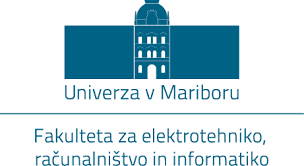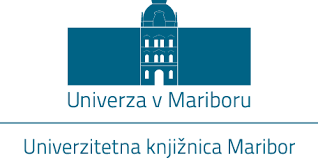Program
DELAVNICE
Sreda, 13. September, 2017
Lokacija:
Predavalnica ALPHA
(objekt G2, 1. nadstropje)
Univerza v Mariboru – Fakulteta za elektrotehniko, računalništvo in informatiko, Koroška cesta 46, Maribor, Slovenija
9.00 – 10.30
Irene Glendinning, Coventry University, United Kingdom: Academic Integrity: Ensuring good academic practice – Workshop for academic staff
This workshop aims:
- To promote good practice for module tutors and project supervisors.
- To clarify policy and procedures for deterring and detecting cases of student academic misconduct.
- To encourage dialogue about measures for reducing cases of plagiarism, academic dishonesty, collusion, ghost writing
- To foster a culture of good practice regarding student support and plagiarism/misconduct prevention measures.
- To collect ideas and good practice to share with others
10.30 – 11.00
Odmor
11.00 – 13.00
Laura Ribeiro, University of Porto, Portugal, Shiva Sivasubramaniam, Nottingham Trent University, United Kingdom, Marco Cosentino, University of Insubria, Italy:: Methodology, ethics and integrity in biomedical research
AimsTo propose and discuss possible interventions aimed at increasing the awareness ofmedical students and physicians towards the critical role of scientific research for the advancement of biomedicine, to empower physicians regarding their potential to engage in preclinical/clinical research and to tackle to “reproducibility crisis” which is undermining the credibility of science in general and in particular of biomedical research (see e.g. http://www.nature.com/news/reproducibility-1.17552).
Educational objectives
The workshop will address three critical levels of training:
- undergraduate training at medical schools;
- postgraduate residency training with regard to the MD-PhD transition;
- a training programme for physicians already integrated into the health system and aiming at added value to their professional and career opportunities through specific training into biomedical research.
Topics covered
RESEARCH INTEGRITY
- Research integrity: what is it and why should we care about it?
- Research misconduct: what is it and how to deal with it?
- Promoting research integrity issues;
- How to deal with concepts of scientific integrity;
- The conflict of interest in biomedical research.
Other possible specific areas/topics:
(i) Preclinical research and laboratory animal care use;
(ii) Human subject research and institutional review boards;
(iii) Publish or perish;
(iv) Understanding biomedical research papers.
13.00 – 13.45
Kosilo
(Lokacija: Univerza v Mariboru – Fakulteta za elektrotehniko, računalništvo in informatiko, Koroška cesta 46, Maribor, Slovenija)
13.45 – 14-30
Shiva Sivasubramaniam, Nottingham Trent University, United Kingdom: Detecting plagiarism – How hard is it?
Lokacija:
GLAZERJEVA DVORANA
(1. nadstropje)
Univerzitetna knjižnica Maribor, Gospejna ulica 10, Maribor, Slovenija
9.00 – 10.30
Dita Dlabolová, Mendel University in Brno: Where is the borderline of plagiarism?
The workshop is a mixture of information, activities to make participants think about the issues and discussions. It also presents results from European-wide survey about plagiarism.We will talk about understanding of plagiarism and academic dishonesty, discuss several scenarios and assess their severity. We will also consider reasons leading students to plagiarism, and discuss measures for prevention, policies and penalties and share personal experience of workshop participants.
10.30 – 11.00
Odmor
11.00 – 12.30
Oliver Trevisiol, Ansgar Schäfer, University of Konstanz, Germany: Plagiarism prevention – what can librarians do?
We invite library staff (and staff from other research support services) to reflect, discuss and get to know their (potential) role regarding plagiarism prevention. Libraries may contribute already by offering courses and other educational measures such as “how to find sources”, “literature and knowledge management” as well as “information literacy”. In addition to that other support activities are requested by scholars and student: advice, answers, materials, etc.During this workshop we will present experiences from the project for plagiarism prevention “Refairence”. This includes reasons, why libraries are involved in the topic, recommended measures and possible reactions and offers to the needs requested by different stakeholders within the university.
12.30 – 13.30
Kosilo
(Lokacija: Univerza v Mariboru – Fakulteta za elektrotehniko, računalništvo in informatiko, Koroška cesta 46, Maribor, Slovenija)
13.30 – 14.15
Salim Razi, Canakkale Onsekiz Mart University, Turkey: Benefiting from anonymous multi mediated writing model to avoid plagiarism
Lokacija:
Predavalnica BREDE FILO
(1. nadstropje)
Univerzitetna knjižnica Maribor, Gospejna ulica 10, Maribor, Slovenija
9.00 – 10.30
Stella Kleanthous and Angeliki Kokkinaki, UNIC Nicosia, Cyprus: Designing and developing an online course for Academic Integrity
10.30 – 11.00
Odmor
11.00 – 12.30
Irene Glendining, Coventry University, United Kingdom: Academic Writing – Guidance for students on Research and Academic Integrity
The workshop for students will cover:
- good study habits and writing skills,
- understanding referencing and citation conventions and using these appropriately,
- the importance of academic integrity,
- finding good quality information sources and assessing reliability of information,
- understanding the expectations and requirements of assessors.
12.30 – 13.30
Kosilo
(Lokacija: Univerza v Mariboru – Fakulteta za elektrotehniko, računalništvo in informatiko, Koroška cesta 46, Maribor, Slovenija)
KONFERENCA
Četrtek, 14. September, 2017
Lokacija:
VELIKA DVORANA
Ministrastvo za izobraževanje, znanost in šport, Masarykova 16, 1000 Ljubljana, Slovenija
9.00 – 9.15
Pozdravni nagovor
9.15 – 9.45
Borut Holcman, Univerza v Mariboru, Slovenija: In Vaš/Tvoj etični IQ je: spoštovani intelektualec?
V strokovni literaturi s področja izobraževanja in raziskovalne dejavnosti ne moremo mimo IQ vrednotenja posameznikove sposobnosti dojemanja stvarnosti. V mnoštvu oblik, ki jih šole, centri za psihološko diagnosticiranje in ljudska presoja uporabljajo, je inteligentnost. Temeljni sta, vsaj tako sledi iz strokovne literature, konvergentna in divergentna inteligentnost in s tem povezana prožnost ali togost inteligentnosti merjenega.
Je mogoče “naklon” inteligentnosti določiti s količinskimi metodami? Stroka se nagiba k ugotovitvam, da nikdar ne bo noben profesor ugotovil in psiholog izmeril nekaj, kar je stvar subjektivne presoje – gre namreč za kakovost, ki je izhodišče za razumevanje sveta v primerjavi s količinsko predpostavko.
Glasbena inteligentnost (razpoznava geometrijo zvoka in omogoča spoznavanje utrip stvaritve: ubranost, neubranost, zven), jezikovna inteligentnost (ne prepoznava besede v njeni pomenski mnogovrstnosti, mehansko prenaša izraz ali besedno zgradbo iz enega jezika v drugega, zelo hitro lahko pri tem spregledamo, da je nekdo poliglot, pa niti najmanj ne upošteva antropoloških razlik in zgodovinskih okoliščin), logično matematična inteligentnost (dojema stvari kot odnose in števila, stvari postanejo razumljive šele v “raz-loženi” – razviti obliki /Platon je to dobro vedel, izročilo pravi, da je dal na zatrep akademije zapisati: “Semkaj naj ne vstopa, kdor ni zemljemerec!”/), prostorska inteligentnost, telesna inteligentnost, psihološka inteligentnost – čustvena inteligentnost (plemenitost svojih strasti, …) in etična inteligentnost.
Sodobna inteligentnost, dosledno razvijana v znamenju tehnike, je omejena na uporabo preračunljivega in izključno funkcionalnega mišljenja, kar pa vodi k opuščanju vsega, kar ni neposredno tehnično uporabno.
Etična inteligentnost, inteligentnost prihodnosti (Gardner, Weinstein), je področje, ki presega “načelo” lastne vesti in področje omejeno z lastnimi interesi. Je področje, ki skrbi za skupnost in postaja odločilno načelo.
Zakaj ne pravo in zakaj etično načelo, zato, ker ima opraviti z družbenimi standardi z razliko od morale, ki se nanaša na osebna prepričanja, etično je vezano na sekularno, morala na religiozno in ker so etične sodbe absolutne in objektivne, moralne so relativne in subjektivne. In zakaj etično ni sprejemljivo? Zaradi SKR – strahu, koristi in razpoloženja. Strah nas je, da bomo z etičnim ravnanjem in govorjenjem postali nezanimivi, z etičnim ravnanjem morebiti ogrozimo svoj položaj – povedati, da je ideja vaša (različne izhodiščne pozicije: asistent, raziskovalec, vodja projekta). Kratkotrajna, trenutna korist – prioriteta. Kako težko je izključiti lastno razpoloženje iz subjektivnega dojemanja prostora. In zato etika in ne pravo. Pravo namreč zahteva, da ravnamo prav in to zaradi avtoritete zakona, strahu pred sodiščem, pred rektorjem, etično ravnamo zaradi avtoritete vrednote.
Samo izobraženci so lahko etični? So res?
Zavedati se moramo, da je akademski prostor crem de la crem družbe.
Kakor velja pravilo za francoske sodnike: noblesse oblige (plemenitost zavezuje) – vsakdo je dolžan ravnati skladno s položajem in ugledom, ki ga ta predpostavlja.
In kakšen je etični IQ akademikov v slovenskem prostoru?
9.45 – 10.15
Milan Ojsteršek, Univerza v Mariboru, Slovenija: Akademska integriteta in plagiarizem na slovenskih akademskih inštitucijah
10.15 – 10.30
Tomáš Foltýnek, Mendel University in Brno, Czech Republic: How to improve academic integrity of your institution with European Network of Academic Integrity
European Network of Academic integrity (http://www.academicintegrity.eu/wp/) is pan European consortium which promotes integrity in whole academia (i.e. education, research and other aspects of academic sector), specifically:
- to collaborate towards research and promotion of academic integrity,
- to provide a platform for academics across all sectors to investigate, exchange, develop, collaborate and access resources in the field of academic integrity,
- to offer opportunities for researchers, educators and practitioners to take a leadership role in the field of academic integrity,
- to present best practices in the management of academic integrity,
- to make available a central point of reference where issues of academic integrity can be discussed, researched, progressed and shared with the wider academic community,
- to organize conferences, workshops and other events on academic integrity
- to network and collaborate with individuals and organisations actively pursuing related research,
- to collaborate towards research,
- to appreciate individual and institutional efforts regarding academic integrity by offering awards.
10.30- 11.00
Irene Glendinning, Coventry University, United Kingdom: Strategies for enhancing academic integrity
The presentation for senior managers and academic teachers will cover:
- The importance of integrity in education and research.
- Developing a strategy for institutional integrity.
- Characteristics of effective institutional policies and procedures.
- Discussions on local requirements and variations.
11.00 – 11.30
Cofee break
11.00- 11.30
Loreta Tauginiene, Mykolas Romeris University, Lithuania: Building ethics infrastructure in academia
11.30 – 12.00
Shiva Sivasubramaniam, Nottingham Trent University, United Kingdom: Bioethics versus moral ethics – You decide
12.00 – 12.30
Veronika Králíková, Mendel University in Brno, Czech Republic: How to deal with contract cheating
12.30 – 13.00
Salim Razi, Canakkale Onsekiz Mart University,Turkey: How to benefit from text-matching software similarity reports?





